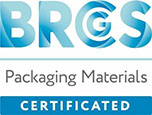4 New Changes in New BRCGS Issue 8 and How They Affect Food Grade FIBCs – Part 1

The BRCGS (erstwhile British Retail Consortium) Food Safety Guidelines Issue 8, issued in February 2019, replaces the earlier version to establish universal standards in food quality.
Since food-grade FIBC manufacturers work in tandem with the food processing industry to ensure food quality preservation, they need to conform to BRCGS Guidelines to get industry recognition through a food safety standards certification.
The latest BRCGS Issue 8 includes provisions to standardise manufacturing processes and facilities of food-grade bulk bags. Let us look at four important changes brought about by the organisation that affect food-grade FIBCs.
1. Culture of Food Safety
BRCGS believes that the prevailing onsite culture is crucial for a continual effort to ensure product safety. Hence, by the new clause 1.1.2, food-grade FIBC manufacturers have to implement a plan for developing and continuously improving the product safety culture.
The company should have an action plan that clearly states how each activity is carried out within set timelines and measured against predefined standards. Further, a working system to review the effectiveness of activities completed should exist, with provisions to document the entire process. The food safety standard certification is granted based on the mandatory audit of these documents.
2. Hazards Analysis by HACCP Food Safety Team
In clause 2.7.1 of Issue 8, BRCGS updates the existing provision of Issue 7 with a list of typical hazards that the HACCP Food Safety Team will identify and record. The current guideline considers the preceding and ensuing steps in the manufacturing process, taking into account every possible raw material hazard.
The specified hazard types are microbiological, physical contamination, chemical and radiological contamination, deliberate substitution or intentional adulteration, malicious product contamination, and allergen risks.
3. Whistle-blower system
BRCGS clause 1.1.6 requires organisations to keep a line of communication open to encourage employees to report any issues regarding product safety, quality, integrity, and legality to the senior management, confidentially. The management should pass on complete information about the system to all staff members.
Further, the senior management should have a process to assess the concerns raised. BRCGS audit team will consider appropriate documentation of the assessment process and actions taken, if any, for certification purposes.
4. Usage of the BRCGS logo
As per the usage conditions elaborated in the audit protocol section of the Standard (Part III, section 5.6), BRCGS restricts the use of its logo and references to certification status in clause 1.1.13 to manufacturers who conform to the guidelines.
At Bulk Corp International, our team with entire top management keeps track of and abides by the latest Food Safety guidelines of BRCGS to protect food quality and retain the trust of our clients.





